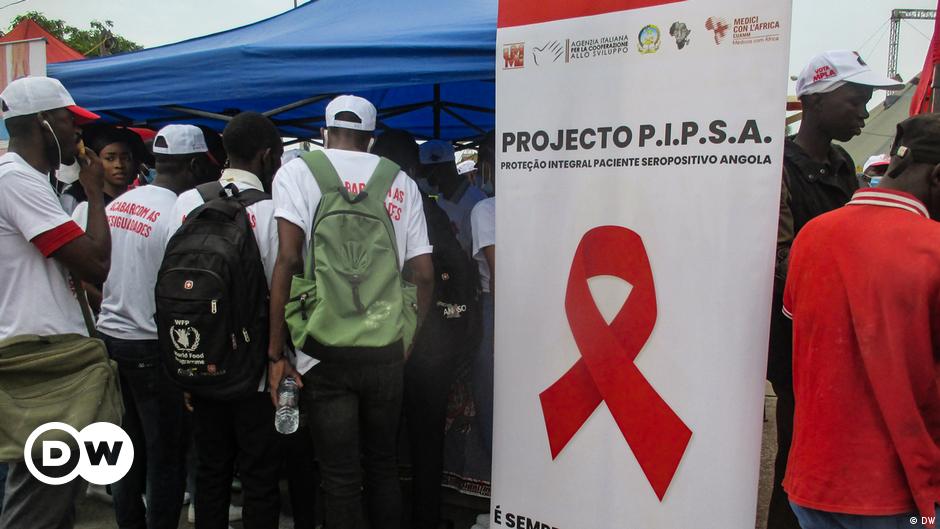According to the latest statistics from the United Nations Program on AIDS (UNAIDS), worldwide there are more than 38 million people living with HIV, which causes AIDS. In Angola, there are 400,000 infected.
Factors such as extreme poverty, high population mobility, early initiation of sexual activity and cultural rituals contribute to the high numbers in Angola, says Antonio Coelho.
The chair of ANASO, the Angolan Network of Major Endemic Diseases and AIDS Service Organizations, argues that it is imperative to act against stigma and discrimination to end the disease by 2030.
Fight stigma
“We have to strengthen sources of solidarity, so that hope and self-respect overcome the trauma and stigmas that still prevail in our society. We need more funding for health, better access to primary health care, and respect for human rights,” Coelho said. DW Africa.

In Angola, only about 112,000 people are receiving antiretroviral therapy. Antonio Coelho points to several challenges in the coming years, including sustaining the national response, improving the quality of care for people living with HIV, re-educating stigma and discrimination, and reducing mother-to-child transmission. and mobilize more additional funds to fight the pandemic.
Coelho explains that the country “is also facing difficulties in administering antivirals, condoms and tests.”
Alarming numbers
According to data from the Kwando-Kubango Provincial Ministry of Public Health, in the past two years the province has recorded nearly 3,500 new cases.
Of particular concern are the more than 400 new cases registered in children and pregnant women, Maria de Fatima Mbanco Matias, the regional HIV/AIDS supervisor, told DW Africa.

“We’ve been to units (military and police), schools and churches to give lectures on prevention, HIV treatment, as well as mother-to-child transmission. We encourage people to use condoms,” said Mbanco Matias, referring to the contraceptives that prevent HIV. virus transmission.
Despite the stigma attached to the disease, a large number of patients go to hospitals, say the authorities, noting, however, that much more needs to be done.
Don’t run away from hospitals.
Fatima Matias left an appeal: “They should come to hospitals. There is a professional ethic and when treatment is given early, there is a greater chance of life.”
Domingas Ndala, 31, resident of Meinong, mother of three. He has lived with the disease for six years. The initial discrimination she felt when she discovered the disease led to her not wanting to identify herself, so her name is fictitious.
But Domingas Ndala says she is leading a normal life thanks to the treatments. He says: “Don’t run away from hospitals. When they diagnose you with the disease, start taking medicine without hesitation, you will be healthy.”
Her husband always tests negative, says Ndala, because she “commits to the entire treatment.”

“Wannabe internet buff. Future teen idol. Hardcore zombie guru. Gamer. Avid creator. Entrepreneur. Bacon ninja.”

